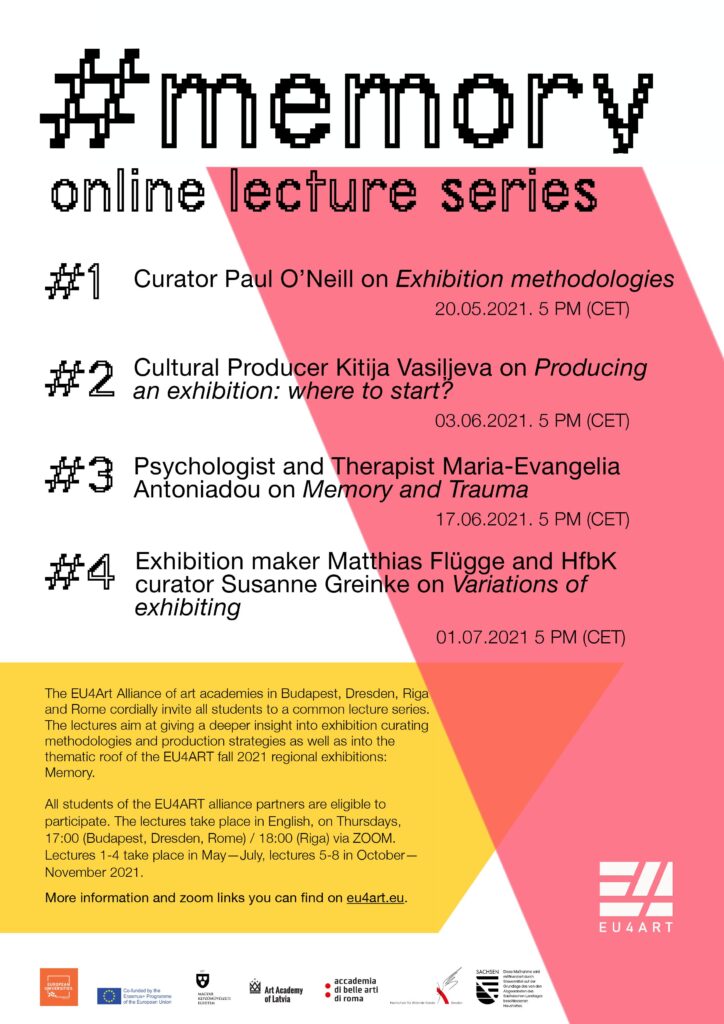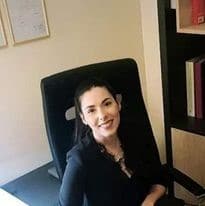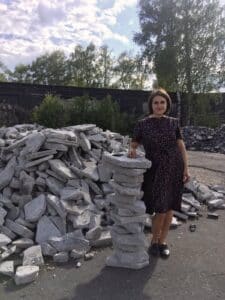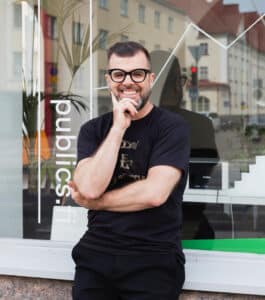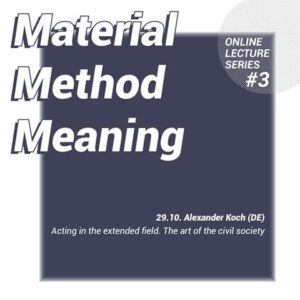Formats such as online lectures are an essential part of the teaching offered within the framework of EU4ART. Not only analog, but also digital and virtual mobility must be promoted in order to expand and strengthen future cooperation and communication across European physical borders.
MEMORY
Series of lectures accompanying the regional exhibitions on Memory
Part I – IV
The EU4Art Alliance of art academies in Budapest, Dresden, Riga and Rome cordially invite all students to a common lecture series. The lectures aim at giving a deeper insight into exhibition curating methodologies and production strategies as well as into the thematic roof of the EU4ART fall 2021 regional exhibitions: Memory.
All students of the EU4ART alliance partners are eligible to participate. The lectures take place in English, on Thursdays, 17:00 (Budapest, Dresden, Rome) / 18:00 (Riga) via ZOOM.
Lectures I—IV take place in May—July, lectures V—VII in October—November 2021
Curator Susanne Greinke together with rector and exhibition maker Matthias Flügge on Curating
Susanne Greinke, curator and head of the exhibition department at HfBK Dresden since 2005, and Matthias Flügge, exhibition maker and headmaster of HfBK Dresden since 2012, talk about the different ways of curating in their particular fields of experience. For Susanne Greinke being a curator at an art academy means a very direct and personal exchange with art students on their work and oftentimes a close companionship with the students in the development of the work. Matthias Flügge has curated several large-scale exhibitions with international focus, among others the show “Der Riss im Raum” on artistic positions after 1945 in Germany, Poland, Slovakia and Czech Republic at Gropiusbau, Berlin und Galeria Zacheta 1994 (together with Jiri Svestka) or touring exhibtions for ifa (Institute for Foreign Relations) such as “Weltreise. Art from Germany on the road“ with works from the collection of ifa from 1949 to today, 2013- (together with Matthias Winzen).
Zoom Link:
https://us02web.zoom.us/j/8675273225?pwd=OVhVdmhxMEdMaFhBdzFqK0lsNlZ4QT09
Meeting ID: 867 527 3225
Passcode: 2yan8e
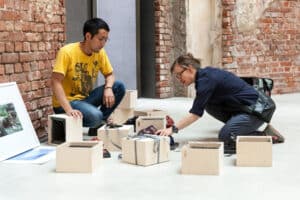
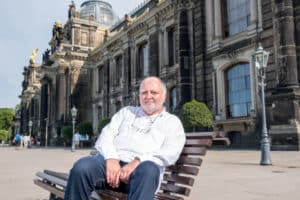
Psychologist and Therapist Maria-Evangelia Antoniadou on Memory and Trauma
In this lecture we will discuss about memory and the psychological aspects of a traumatic event, and we will specify the terminology that is used about memory – working, short-term, long-term, etc. It is known that when an individual experiences a traumatic event, their memory can be affected in many ways, trauma might affect their memory for that event, memory of previous or subsequent events, or thoughts in general, most commonly affected area by psychological trauma is the long-term memory (Missing memories, changes to memory, intensified memories.)
Our main goal is to discuss about the psychological aspects of the trauma in respect to the repressed memory or memory, intrusive thoughts and emotions. In the end of the lecture, we will mention the Post-traumatic stress disorder which is a psychological disorder caused by exposure to a terrifying event or ordeal involving the occurrence or threat of physical harm or where a person learns these terrible events happened to a close family member or someone whom they care about. It is one of the most severe and well-known of the different types of psychological trauma.
Maria-Evangelia Antoniadou is a Psychologist, Cognitive Behavioral Therapist and Dialectical Behavioral Therapist. She has completed her bachelor Degree in Psychology, Department of Psychology, National and Kapodistrian University of Athens and her master degree in “Health Promotion and Prevention of Psychiatric disorders”, Medical School National and Kapodistrian University of Athens. Currently she works in private field as well as in the Aeginitio Hospital, Athens University First Clinic as a volunteer Psychologist from 2016 in the Department of Eating Disorders and in the Department of Dialectical Behavioral Disorders of Personality Disorders with Research Associate the Assistant Professor of Psychiatry of National and Kapodistrian University of Athens Dr. F. Gonidaki.
Zoom link:
https://us02web.zoom.us/j/84610794448?pwd=M1VnTTBaV1NianVUUVM3V0wrWW9PUT09
Meeting ID: 846 1079 4448
Passcode: 110958
Memory #2 – Producing an exhibition: where to start?
THURSDAY, 03/06/2021, 5 pm CET
Kitija Vasiļjeva is a cultural producer based in Riga working on international contemporary art events in Latvia and abroad. She worked as head of production at the Riga International Biennial of Contemporary Art (RIBOCA), Latvian Pavilion entitled ARMPIT at the 56th Venice Art Biennale and contemporary art festival Survival Kit, editions 6-9. Kitija produced ehibition You’ve Got 1243 Unread Messages at the Latvian National Museum of Art which won national public media award as event of the year 2017. She is also a guest lecturer at the Latvian Academy of Arts teaching exhibition production. She graduated from Maastricht University earning an MSc in Cultures of Arts, Science and Technology.
Kitija Vasiļjeva
Zoom link:
https://us02web.zoom.us/j/87245596359?pwd=WnkyYjVHbjN4aVFvcXpjM01lQjZCdz09
Meeting ID: 872 4559 6359
Passcode: 057888
Memory #1 Exhibition methodologies
Curator Paul O’Neill on Exhibition methodologies
Dr. Paul O’Neill is an Irish curator, artist, writer and educator. He is the Artistic Director of PUBLICS, a position he took up in September 2017. PUBLICS is a curatorial agency and event space with a dedicated library, and reading room in Helsinki.
Between 2013-17, he was Director of the Graduate Program at the Center for Curatorial Studies (CCS), Bard College, New York. He is author of the critically acclaimed book The Culture of Curating and the Curating of Culture(s), (Cambridge, MASS., The MIT Press, 2012), which has been translated into many languages. His most recent coedited book is Curating After the Global: Roadmaps to the Present published with MIT Press, 2019.
Paul is widely regarded as one of the foremost research-oriented curators, and leading scholar of curatorial practice, public art and exhibition histories. Paul has held numerous
curatorial and research positions over the last twenty years and he has taught on many curatorial and visual arts programs in Europe, The USA, Asia and the UK.
Zoom link:
https://us02web.zoom.us/j/85389873129?pwd=elduVUc0MGlJKzhmZEtGS1FLbmZTQT09
Meeting ID: 853 8987 3129
Passcode: 100235
Online Lecture Series “Material Method Meaning”
Experimental Video and Collective Art Practice in Congo
Online lecture with Eléonore Hellio, Democratic Republic of Congo | Material Method Meaning – Online Series
Contemporary art practice in the Democratic Republic of Congo is not really in the focus of the globalized art scene. Nevertheless, a vibrating art scene and fascinating artistic collaboration projects can be found there.
Eléonore Hellio lives and works in Kinshasa (Democratic Republic of Congo). She organizes workshops, makes films, installations, performances and publishes texts and photographic work, as a solo practitioner and in collaboration with Kongo Astronauts, a collective that she founded in 2013 with performance artist Michel Ekeba. As one of the co-founders of CATPC (Cercle d’Art des Travailleurs de Plantation Congolaise), she is at the helm of daily actions aimed at questioning and understanding the critical curriculum of LIRCAEI (Lusanga International Research Centre for Art and Economic Inequality) through the making of ancestral and afrofuturist sculptures with plantation workers. Simultaneously, she is involved in a wide range of art and research projects like SPARCK, an experimental Pan-African curatorial platform bringing together international thinkers around questions relating to the impact of digital globalization and challenges posed by the postcolonial era.
Registration: baumhauer.eu4art@hfbk-dresden.de
Join the event via Zoom | Thursday 17.12.2020 | 5 pm (Rome, Budapest, Dresden = 6 pm Riga time)
#8 Beyond arts vs. Crafts, exploring a contemporary framework for lacquer painting
Online Lecture with Phi Phi Oanh (VN) | Material Method Meaning – Online Series
Sơn ta, a resinous substance extracted from the Rhus Succedanea tree native to North Viet Nam, has been collected and processed artisanally since ancient times. Traditionally, the resin was used to cover the wood of everyday objects and of the interior of temples, not just as decoration, but also to protect them from termites and other insects as well as changes in temperature and humidity. Beginning in the 1930s, Sơn Ta was adapted as a fine arts painting medium at the École Supérieure des Beaux Arts de l’Indochine established by the French colonial government.
The first generation of Vietnamese painters of this school pioneered pictorial techniques of lacquer, merging ancient techniques of village crafts with the expressive ideals of French romanticism to create a truly hybrid art form. When this ancient substance known as sơn ta (Vietnamese lacquer) was transformed into the modern tranh sơn mài (lacquer painting) it was joined to a broader genealogy of painting, one that can be described as western and art historical.
Phi Phi Oanh is an independent visual artist who uses Vietnamese sơn ta lacquer as an area of artistic research. He´s interested in the process of acculturation, not only in how lacquer becomes painting, but also in how this process comprises an entire history of representation “becoming” lacquer. This goes beyond the assumption that lacquer merely attained appreciation as an objet d’art and reified into a “canon” of visual styles. My work explores the medium’s ongoing dialogues in the field of painting throughout the 20th century, from modernism to the contemporary period – its ontological search for itself, questioning and expanding into areas such as philosophy, critical theory, identity politics and visual culture. Vietnamese lacquer, thus having become Vietnamese lacquer painting, is now an assembly of meaning with the cognitive faculties to order signs, perspectives, take part in a thought relationship between subject and object, content and representation, as well as attend to the particular will of the individual and his or her relation with the environment.
Registration: baumhauer.eu4art@hfbk-dresden.de
Join the event via Zoom | Thursday 10.12.2020 | 5 pm (Rome, Budapest, Dresden = 6 pm Riga time)
Online Lecture with Joanna Kiliszek (PL) | Material Method Meaning – Online Series
The same mistake should not be made twice. In 2019, after four years of destruction of civil society and culture, Polish society elected a nationalist-conservative government for the second time.
It is difficult to specify an area where the balance of four years of rule by the Law and Justice Party (PiS) would be as clearly negative as in culture – perhaps apart from the reforms of Minister Ziobro’s judicial system. The rule of the Prime Minister and Minister of Culture and National Heritage – Mr. Gliński means constant conflict, attempts at censorship, incompetent takeover and destruction of the institutions that have functioned so far.
At the first line of demolition there were the theatre and literature, then museums, especially historical and international cooperation. This was followed by the field of film. In the end, in 2019, censorship came into play against contemporary art and art centres, as well as against universities, including art academies.
How does Polish contemporary visual art act now? How to look for new and alternative forms of work? In the last years of the undemocratic rule of the Law and Justice Party, no new, visible cultural creative environment was created on the right side. This makes it all the more important to observe new phenomena in contemporary art in Poland, and new from the action. In this lecture we will look at the practices of Polish contemporary art, which is in a state of emergency.
Dr. Joanna Kiliszek – historian of art, curator cultural manager. Studied at the Art History Department at the University of Warsaw and at the University of Cologne. She obtained a PhD in the M. Skłodowska-Curie Innovative Training Network NACCA at the Faculty of Conservation and Restoration of Works of Art at the “NOVUM” Interdepartmental Studio for the Protection and Conservation of Modern and Contemporary Art at the Academy of Fine Arts in Warsaw in 2019.
She was the Deputy Director of the Adam-Mickiewicz-Institute/Warsaw, 2008-2014, Director of the Polish Cultural Institute in Berlin, 2001-2007 and in Leipzig, 1996-2001. Member of the AICA and Association of German Art Historians. Lives in Berlin.
Registration: baumhauer.eu4art@hfbk-dresden.de
Join the event via Zoom | Thursday 03.12.2020 | 5 pm (Rome, Budapest, Dresden = 6 pm Riga time)
What can art do? Empirical investigations into the depth, scope, and implications of our shared art experiences
Online Lecture with Matthew Pelowski | Material Method Meaning – Online Series
Despite the millennia-old appreciation and anecdotal documentation of the power and nuanced nature of art experiences, actual empirical scientific investigations of how we experience art and how our diverse reactions might connect, diverge, or unite across styles and peoples are only now emerging. Especially there are very few attempts to explore experiences in ecologically valid settings and to connect what happens in art experience to actual implications for the individual, their mind and bodies, as well as for society. Thus, we also find questions, from a number of levels, regarding why we devote such resources to art presentation and practice, and whether there might be better avenues for public resources or interest. In this talk, Matthew Pelowski reports on a program he and his colleagues have been developing for several years, and for which they were recently awarded EU Horizon2020 funding, to theorise and then investigate how individuals engage with art across a range of art varieties and ecologically valid settings. Pelowski reports on preliminary findings employing advanced Network modelling and a range of empirical measures for tracking emotions, physiological responses, and even the body, and connecting these to real-world impacts on the viewer.
Matthew Pelowski PhD is Asst. Professor for Psychology of Cognitive and Neuroaesthetics at the University of Vienna,
Faculty of Psychology, Department of Cognition, Emotion, and Methods in Psychology.
Registration: baumhauer.eu4art @ hfbk-dresden . de
Join the event via Zoom | Thursday 19.11.2020 | 5 pm (Rome, Budapest, Dresden = 6 pm Riga time)
Join the event via Zoom Thursday 05.11.2020
5 to 6.30 pm
Registration: baumhauer.eu4art@hfbk-dresden.de
Zulfikar Ali Bhutto (b. Damascus, 1990) is a visual artist, performer and curator. Bhutto’s work explores complex histories of colonialism that are exacerbated by contemporary international politics and in the process unpacks the intersections of queerness and Islam through a multi-media practice. Bhutto was curatorial resident at SOMArts Cultural Center where he co-curated, The Third Muslim: Queer and Trans Muslim Narratives of Resistance and Resilience and has shown in galleries, museums and theaters globally. He has spoken extensively on the intersections of faith, radical thought and futurity at Columbia University, UC Berkeley, and The California College of the Arts and Mills College. Bhutto is currently based in San Francisco, California where he received an MFA at the San Francisco Art Institute in 2016.
More Info via:
www.zulfikaralibhuttoart.org
Join the event via Zoom Thursday 29.10.2020 from 5 to 6.30 pm
Registration: baumhauer.eu4art@hfbk-dresden.de
Alexander Koch: Acting in the Extended Field. The Art of the Civil society.
When artists receive commissions from citizens, a new relationship between art and society becomes possible.
Within the New Patrons program, mediators support citizens and artists to create ambitions projects that respond to the needs and desires of local communities, regardless who they are. Even though 500 projects were realized in the past 30 years, this is still a new way of working in the (extended) field of art. Alexander Koch is a curator, author and gallerist, and he is director of the German New Patrons program „Neue Auftraggeber“.
More Info via:
www.zulfikaralibhuttoart.org
Join the event via Zoom | Thursday 22.10.2020 | 5 pm (Rome, Budapest, Dresden = 6 pm Riga time)
Registration: baumhauer.eu4art@hfbk-dresden.de
Online Lecture with Till Ansgar Baumhauer; PhD | Material Method Meaning – Online Lecture Series
Drawing and Documentation of scientific result have been intertwined for centuries. But, apart from the precision of depiction in general, which exactly, is the role of the artist in this field of work?
How do artistic practice and perception make additional viewpoints possible and visible, but also open up the field to aspects of modification or errors within these processes of gaining insight? And which are perspectives developing from these questions towards a new important role of artistic practice within the field of art, scholarly work and artistic research?
Till Ansgar Baumhauer works at HfBK Dresden in the EU4ART team. He studied painting, graphics and transdisciplinary artistic practice in Berlin and Dresden, worked as archaeological draftsman in Afghanistan from 2009 to 2011 and hold an artistic PhD from Bauhaus University at Weimar.
Join the event via Zoom | Thursday 15.10.2020 | 5 pm (Rome, Budapest, Dresden = 6 pm Riga time)
Registration: baumhauer.eu4art@hfbk-dresden.de
Although contemporary art practice has already discovered and used almost all available materials, there are a number of materials that meet with resistance from artists and viewers alike. This resistance has cultural connotations and can itself become the object of investigation in artistic practice.
Lisa Glauer is a painter working at on the interface to installation and public art and has worked as a curator and art & design theorist. Her project “Walking from Frauenklinik to Futurium” was recently funded by the Berlin School of Advanced Studies in Science and Studies in Berlin, where she was selected to participate as an Associate until 2019. She was called on to work on the “GedenkOrt Charité” public art project as part of the project team, dealing with the commemoration of victims in relation to medical atrocities during National Socialism and has been working as a research fellow at Charité, Institute for History of Medicine and Ethics of Medicine, and the Institute for Art in Context/UdK since 2016. Besides maintaining her own artistic practice, she has been teaching at Institute for Art In Context as deputy of Wolfgang Knapp (Vertretung in der Lehre) from 2016- 2018, producing two exhibitions with and for the students of her seminars these past two years. She taught at Associate in the international MFA Program Public Art and New Artistic Strategies at Bauhaus-University in Weimar (Bauhaus-Universität Weimar) from 2009 until 2015, where she focussed in particular on developing and implementing international projects in public space.
